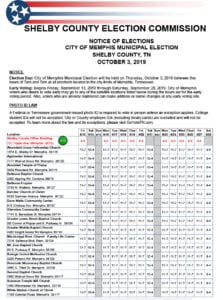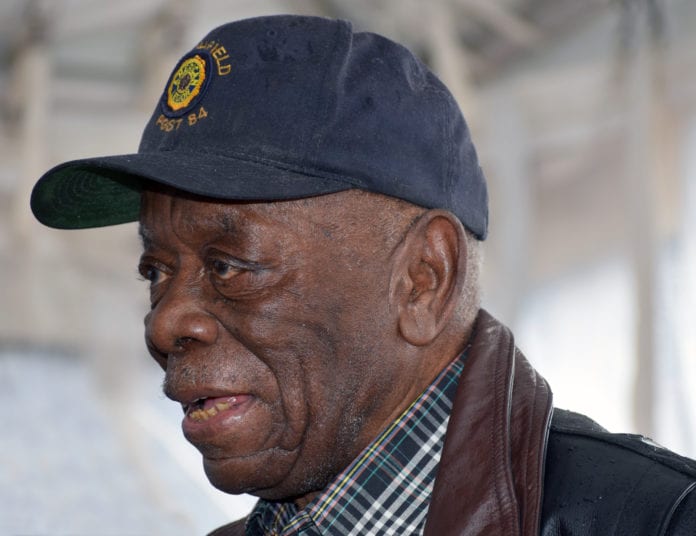At 92, retired Capt. Jerry Williams of the Memphis Police Department most likely will drive to his local precinct to vote in the Oct. 3 Municipal Election. And if by some chance he can’t continue his personal tradition, he’ll hitch a ride.
Voting is that big of a deal to him!
“I generally will drive myself to the polling place. Usually, I go to early voting,” said Williams, the last living member of the first class of African Americans to serve as Memphis Police Department officers. “There’s just no call to not vote. It’s more important today than it ever was.”
Williams has been “voting and campaigning for good people ever since I could vote. From way back in the days of Boss Crump, I was proud to vote because that is our power as a community.”

For African Americans, progress in government, law enforcement and many other professions and circumstances have come at an often slow and painful pace. The journey has made Williams particularly sensitive to a disturbing dynamic:
“Many of our people just don’t care about voting because they say it won’t make any difference,” he said. “When we elected our first black president, I was thanking God for letting me live to see that in my lifetime. President Obama was the son of promise. The one we knew could be elected some day. And I had the privilege of voting for him.”
Williams keeps up with things and the more he does, the more the need to vote is amplified.
“Now we have this man, Trump, in the White House, saying things about black people and other people who are not white. It seems like things are going backwards, like they were way back when we didn’t have any rights, and we weren’t treated equally. It takes me way back there.
“We don’t want to go back. We want to go forward. That’s why I don’t understand black people not caring about the vote,” said Williams.
“We must vote. We want a better world for our children and grandchildren coming behind us. … Our power is in our vote.”
Williams recalls hearing stories about people being told to recite the whole Constitution before they could vote. Or, they were asked to explain some complex law at the polls. Many were illiterate and had not gone to school. They were aware that white voters could not perform those tasks and were never asked to do so.
“If black people today could have experienced the way things were way back when we wanted to vote but could not, I believe they would be more appreciative of the vote,” said Williams.
“People would walk miles to get to a polling place and wouldn’t be allowed to vote. That was all over the south, but especially down in Mississippi. Black people were treated no better than farm animals. White folk didn’t let us vote. It is our right, and it is our privilege, and should be treated as such.”
He remembers the racially designed inequality that “was just how things were” in the Jim Crow South.
“In the late ’60s with integration and the marches to help us get equal rights, voting was so important,” said Williams. “More and more blacks were elected to all kinds of offices because we stood together, and we demanded the right to vote. The law was on the books, but Southern cities didn’t recognize the federal law. They ruled their little towns the way they saw fit. Things didn’t start to really change for us until we could exercise our right to vote.”
Born March 24, 1927, Williams observed that, “A lot of us older ones are going to move off the scene in a few years. …We want our children and young people to understand the cost that was paid for the right to vote. They beat us and sicked the dogs on us and turned the fire hose on us, but we wouldn’t stop marching. And they killed some of us. But God was with us way back there.
“There is a debt we owe – to our children and their children, and we owe it to those who marched for the right to vote,” said Williams.
“Apathy beat us in 2016.We can’t neglect our duty to vote – in every election, on every level. We can’t afford to stay home. We just can’t go back.”



